What are the different mutual fund structures?
A mutual fund can choose between two business structures when they are first created. They can elect to be established either as a Corporation or a Mutual Fund Trust.
Corporation Mutual Fund For a fund to be structured as a Corporation, the fund must first be a Canadian public company, whose only business is investing its funds. At a minimum, 95% of the issued shares must be redeemable at the shareholder’s option.
The mutual fund corporation is subject to a special 25% income tax on all taxable dividends received from the fund’s investment in shares of corporations resident in Canada. The Corporate mutual fund is taxed at normal corporate rates on other income, such as interest and foreign dividends, and on 50% of the funds realized net capital gains in the calendar year.
Given the income tax considerations, typically only domestic common share and preferred share mutual funds, which obtain the majority of income from Canadian resident corporations, use the corporate business structure. This structure enables them to avoid paying income tax by distributing their income and net realized capital gains to shareholders.
Mutual Fund Trust In Canada, most mutual funds are structured as Mutual Fund Trusts, which issue units to investors instead of shares. A Trust structure enables the mutual fund to escape paying income tax on income earned if it distributes all net realized capital gains, interest and dividends, after expenses, to unit holders. As a result, Trust mutual funds make it a practice to pay out all forms of income by the calendar year-end because any income retained by the trust, in excess of expenses, is taxed at the highest applicable income tax for individual taxpayers. The income paid to investors is considered their income and taxed accordingly. The income flowing to investors retains its characteristics, i.e. dividends, interest, capital gains, and others, and is taxed in the investors’ hands at the applicable rates.
Unlike corporate shareholders, Trust fund unit holders have less control over the mutual fund trust. Corporate shareholders are able to vote at annual meetings, whereas Trusts appoint a Trustee to act as the prudent person handling the affairs of the trust.
Unit holders, in a trust structure, must vote their approval for specific changes at special meetings before the mutual fund can change certain aspects of the fund. For example, unit holders must vote for changes in the following:
- frequency (i.e. daily, weekly, monthly, etc.) in the calculation of the net asset values (NAVs)
- the investment fund’s investment objectives
- the trust’s investment management fees
- auditors or investment fund managers
Related Questions
- What are the differences between closed- and open-ended mutual funds?
- How do I buy and sell open-end fund units?
- How are the shares valued?
- How are the units valued?
- What are the costs associated with owning open-end units?
- What are the income tax aspects of owning open-end fund units in a taxable account?
- Can I reinvest my dividends in additional shares of the open-end fund?
- How do I buy and sell closed-end fund shares?
- What are the costs associated with owning closed-end shares?
- What are the income tax aspects of owning closed-end fund shares?
- Can I reinvest my dividends in additional shares of the closed-end fund?
- How do I decide which mutual fund to buy?
- Are there other criteria I should consider when deciding which mutual fund to buy?
- Is a mutual fund’s past performance a reliable guide for estimating future returns?
- What are the different mutual fund categories?
- What are the differences between passive and active mutual funds?
- What are some additional resources for mutual funds?

